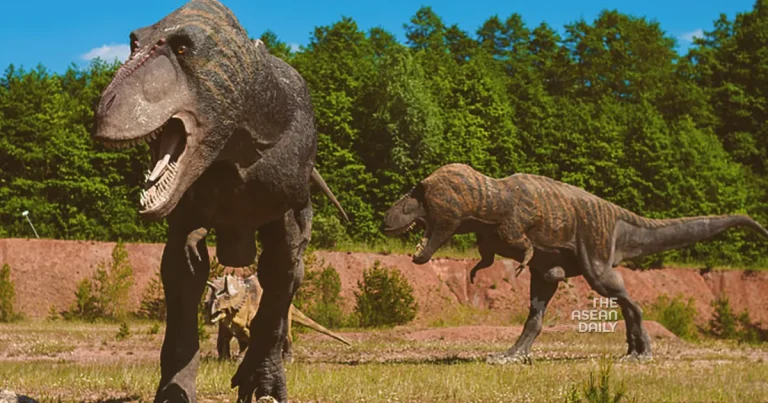31-10-2023 (WASHINGTON) The catastrophic asteroid impact that struck Mexico’s Yucatan Peninsula 66 million years ago, leading to the demise of three-quarters of the world’s species and the end of the dinosaur era, unleashed a series of immediate and long-term effects. Scientists now suggest that the dust from pulverized rock, ejected into the atmosphere by the impact, played a significant role in driving extinctions by causing a climate catastrophe.
The aftermath of the impact included wildfires, earthquakes, a massive shockwave, and towering waves in the seas. However, the subsequent climate disaster, triggered by the darkening of the skies due to debris and the resulting temperature drop, proved fatal for numerous species. Researchers have now calculated that approximately 2,000 gigatonnes of dust, exceeding the weight of Mt. Everest by more than 11 times, blanketed the atmosphere.
To understand the post-impact conditions, scientists conducted paleoclimate simulations based on sediment samples from the Tanis site in North Dakota, which preserved evidence of the extensive dust fallout. The simulations revealed that the fine-grained dust, measuring 0.8-8.0 micrometres, could have blocked photosynthesis for up to two years by rendering the atmosphere opaque to sunlight. The dust remained in the atmosphere for 15 years, according to Cem Berk Senel, a planetary scientist from the Royal Observatory of Belgium and Vrije Universiteit Brussel, who led the study published in the journal Nature Geoscience.
Previous research had identified sulphur released after the impact and soot from wildfires as contributing factors. However, this study highlights that dust played a more significant role than previously recognized. The silicate particles, derived from the shattered granite and gneiss rock, formed a global cloud layer. These particles were a result of the violent impact that formed the Chicxulub crater in the Yucatan, spanning 112 miles (180 km) in width and 12 miles (20 km) in depth.
Following the impact, Earth experienced a sharp decline in surface temperatures, dropping by approximately 15 degrees Celsius. The planet plunged into an “impact winter,” characterized by plummeting global temperatures and the collapse of primary productivity. This collapse disrupted the process by which land and aquatic plants and organisms convert inorganic sources into food, triggering a chain reaction of extinctions. Herbivores starved as plants died, while carnivores faced prey scarcity and perished. In marine ecosystems, the loss of tiny phytoplankton resulted in the collapse of food webs.
“While the sulphur stayed about eight to nine years, soot and silicate dust resided in the atmosphere for about 15 years after the impact. The complete recovery from the impact winter took even longer, with pre-impact temperature conditions returning only after about 20 years,” explained Özgür Karatekin, a planetary scientist from the Royal Observatory of Belgium and co-author of the study.
The asteroid, estimated to be 10-15 km wide, brought an end to the Cretaceous Period. Dinosaurs, along with marine reptiles and other groups, perished, leaving mammals as the beneficiaries. Mammals, until then minor players, seized the opportunity to become the dominant organisms on Earth.
“Biotic groups that were not adapted to survive dark, cold, and food-deprived conditions for almost two years would have experienced massive extinctions,” said Karatekin. “Fauna and flora that could enter a dormant phase — for example, through seeds, cysts, or hibernation in burrows — and were able to adapt to a generalistic lifestyle — not dependent on one particular food source — generally survived better, like small mammals.”
Had this disaster been averted, dinosaurs might still reign supreme today. “Dinos dominated Earth and were doing just fine when the meteorite hit,” noted Philippe Claeys, a planetary scientist from Vrije Universiteit Brussel and co-author of the study. “Without the impact, my guess is that mammals, including us, had little chance to become the dominant organisms on this planet.”




